All posts in CONSTITUTIONAL LAW

10The contemporary role, scope and powers of the executive 10.1 Defining the executive: Ministers, Government departments and public bodies 10.1.1 The huge scope of the executive in the United Kingdom today is a complex feature of the constitution, and the executive is the principal means of governance in the country . . . Read more

6European Union law 6.1 The origins and development of EU law 6.1.1 The European Economic Community came into being with the Treaty of Rome (1957), which established the foundations for a new level of European co-operation on issues of economic and social development. Initially there were six Member States. The . . . Read more

13Process, standing and remedies in judicial review 13.1 Procedural requirements in applying for permission for judicial review 13.1.1 The procedural basis for judicial review is found in the: • Supreme Court Act 1981; and • Civil Procedure Rules (Part 54) 13.1.2 Both of these set out procedural requirements in relation . . . Read more

11The contemporary role and powers of the courts 11.1 The role of the courts in the UK constitution 11.1.1 The role of the courts is to offer redress – that is, to be a way for parties to legal disputes to resolve those disputes. The courts are arranged in a . . . Read more

8Devolution and independence 8.1 Historical overview of the formation of the United Kingdom Wales 8.1.1 King Edward I of England undertook a defining military conquest of large parts of Wales between 1277 and 1283. Since then, the Prince of Wales has always owed allegiance (and has most often been a . . . Read more
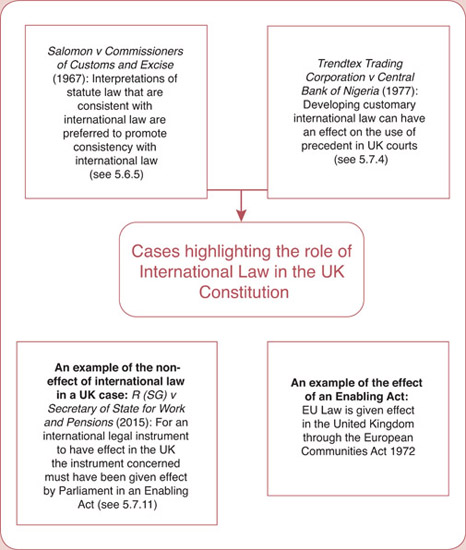
5The role of international law 5.1 What is international law? 5.1.1 Wallace and Martin-Ortega have written a most useful definition that contemporary international law ‘refers to those rules and norms that regulate the conduct of States and other entities …’. 5.1.2 Such ‘other entities’ include supranational organisations such as the . . . Read more
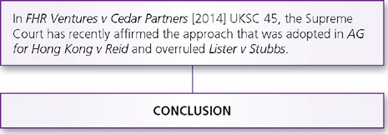
8 Constructive trusts I AIMS AND OBJECTIVES By the end of this chapter you should be able to: ■ understand the shades of meaning of the expression ‘constructive trust’ as used over the centuries ■ distinguish between an institutional and remedial constructive trust ■ understand the rule in Keech v . . . Read more
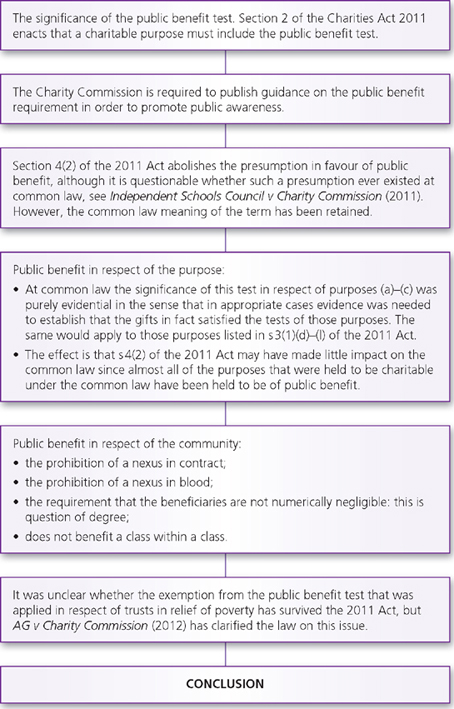
12 Charitable trusts AIMS AND OBJECTIVES By the end of this chapter you should be able to: ■ appreciate the privileges enjoyed by charitable trusts ■ define a charity within the new Charities Act 2011 ■ recognise a charitable purpose within the Charities Act 2011 ■ understand the cy-près doctrine . . . Read more
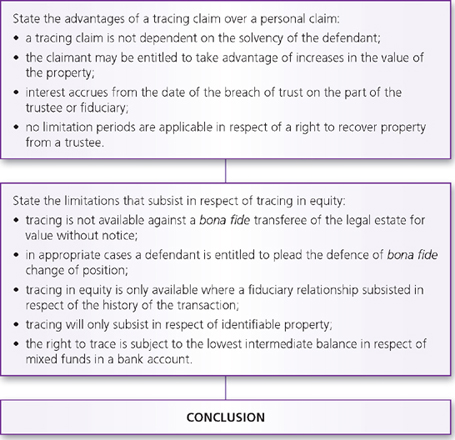
16 Breach of trust AIMS AND OBJECTIVES By the end of this chapter you should be able to: ■ recognise whether a breach of trust has been committed by the trustees ■ apply the principles concerning the measure of the trustee’s liability ■ ascertain whether simple or compound interest is . . . Read more
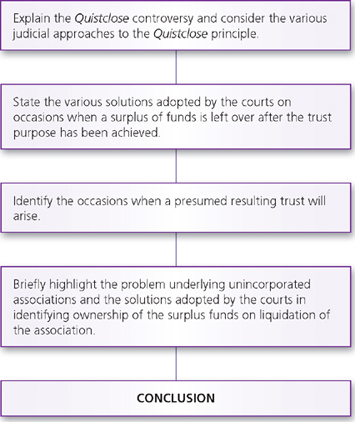
7 Resulting trusts AIMS AND OBJECTIVES By the end of this chapter you should be able to: ■ classify resulting trusts ■ understand the Quistclose controversy ■ recognise an unincorporated association ■ comprehend the basis of distributing funds on the liquidation of unincorporated associations ■ understand the rationale behind presumed . . . Read more





